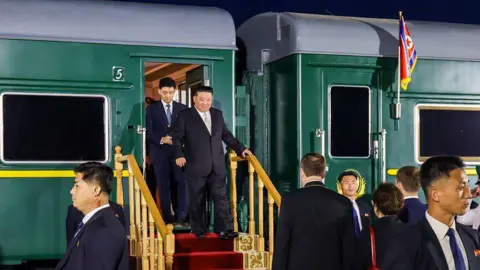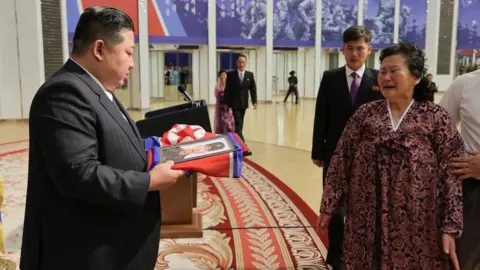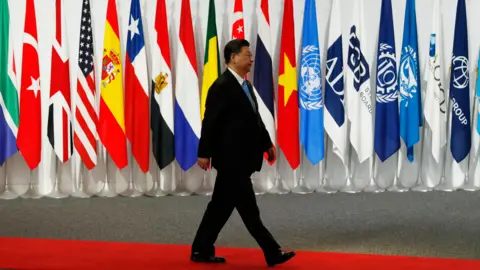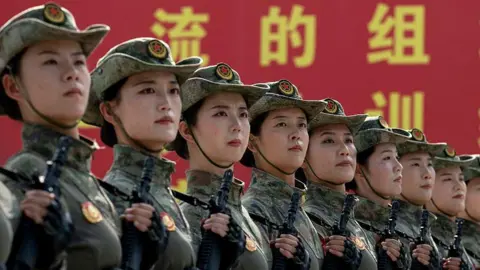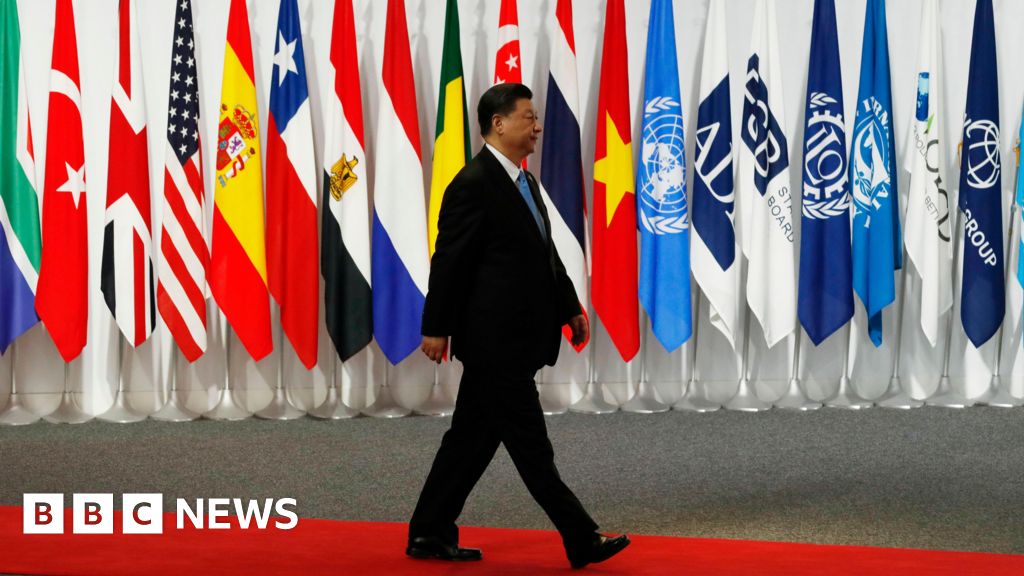In the politically volatile region of Chechnya, the health of Ramzan Kadyrov, the Kremlin-backed leader, is causing unease and speculation about the future governance of the area. Kadyrov, who has maintained control over Chechnya for two decades through stringent measures against dissent and independence movements, is reportedly gravely ill, escalating concerns over who will sustain his oppressive regime.
At just 48 years old, Kadyrov has been integral in suppressing separatism, enjoying a level of autonomy and state resources unmatched by other regional leaders. His current absence from the public eye spurs questions about succession, with many speculating that his 17-year-old son could be the heir apparent. However, Kadyrov Jr.'s age poses legal restrictions, complicating a straightforward transition of power.
The potential candidates for leadership are not without controversy. Some are infamous for human rights abuses, including the persecution of LGBTQ+ individuals, while another contender has gained notoriety for military involvement in the Ukraine conflict. This spectrum of candidates reflects a grim reality for the people of Chechnya, where past decades of conflict and repression have shaped a turbulent political landscape.
Under Kadyrov’s rule, Chechnya has imposed strict Islamic laws that often clash with federal regulations, showcasing an autonomy that Kadyrov has leveraged for regional advantage. His forces, dubbed "TikTok soldiers," were noted for their publicity over actual military contributions, leading to questions about the effectiveness and readiness of Chechen troops in broader conflicts.
As the situation unfolds, the potential power vacuum in Chechnya could provoke instability in a region that has endured severe turmoil, making the question of succession critical for both local citizens and the broader Russian Federation.
At just 48 years old, Kadyrov has been integral in suppressing separatism, enjoying a level of autonomy and state resources unmatched by other regional leaders. His current absence from the public eye spurs questions about succession, with many speculating that his 17-year-old son could be the heir apparent. However, Kadyrov Jr.'s age poses legal restrictions, complicating a straightforward transition of power.
The potential candidates for leadership are not without controversy. Some are infamous for human rights abuses, including the persecution of LGBTQ+ individuals, while another contender has gained notoriety for military involvement in the Ukraine conflict. This spectrum of candidates reflects a grim reality for the people of Chechnya, where past decades of conflict and repression have shaped a turbulent political landscape.
Under Kadyrov’s rule, Chechnya has imposed strict Islamic laws that often clash with federal regulations, showcasing an autonomy that Kadyrov has leveraged for regional advantage. His forces, dubbed "TikTok soldiers," were noted for their publicity over actual military contributions, leading to questions about the effectiveness and readiness of Chechen troops in broader conflicts.
As the situation unfolds, the potential power vacuum in Chechnya could provoke instability in a region that has endured severe turmoil, making the question of succession critical for both local citizens and the broader Russian Federation.














